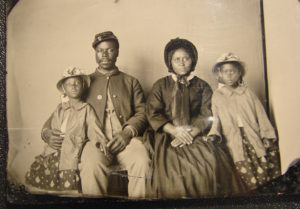
We’ve Always Been Here: Rediscovering African American Families in the U.S. Census
When I initially began examining United States Colored Troops (USCT) soldiers, I primarily focused on Civil War pension records. As previously noted, these rich primary sources can illuminate the forgotten lives of African Americans in many ways but do not (nor does any single historical record) tell the whole story ...
Read More
Read More
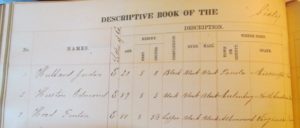
Black Virginians in Blue: A Digital Project Studying Black Union Soldiers and Sailors from Albemarle County, Virginia
For the last four years, the John L. Nau III Center for Civil War History at the University of Virginia has been working to uncover the untold story of Albemarle County, Virginia’s Black men who served in the United States Colored Troops (USCT) or Union navy. Our project, which we ...
Read More
Read More
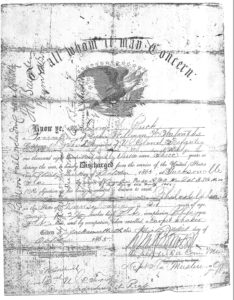
Black Families’ Unending Fight for Equality: Teaching Civil War Pension Records
When teaching the history of the United States Colored Troops (USCT), students often ask how we can find historical records from these historically marginalized people? Since many of the soldiers were working poor and formerly enslaved, they did not have (for various reasons) the time, resources, or (in some cases) ...
Read More
Read More
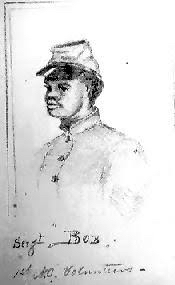
Responding to the Call: Engaging the Public in Conversations about African American Civil War Participation
Located at the edge of the Great Dismal Swamp, refuge to runaway slaves for over two centuries of American slavery, and connected to North Carolina’s coastline by a complex series of waterways, Elizabeth City and its surrounding rural counties present a verdant landscape filled with unknown, unspoken, or unwritten African ...
Read More
Read More
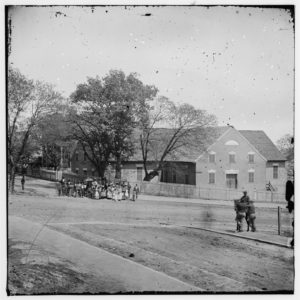
The Politics of Faith: How Contests within Sacred Space Shaped Post-Emancipation Society
In this roundtable, three historians present short excerpts from papers they would have presented at the 2020 meeting of the Society of Civil War Historians, which was cancelled due to Covid-19. The authors featured here explore how the wartime destruction of slavery shaped politics and power within Black churches, between ...
Read More
Read More
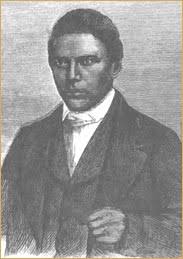
“‘Irregular Secession’: The Political Nature of Religious Space in the Reconstruction-era South
In the early summer of 1865, just a few months after Confederates in Raleigh, North Carolina, officially surrendered, Black Baptists found themselves faced with a choice: submit to white leadership and be permitted to use the roomy sanctuary of the city’s main Baptist church, or refuse and be relegated to ...
Read More
Read More
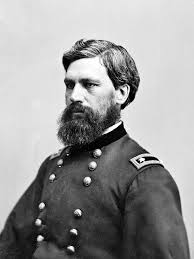
Strategic Alliance: John Hartwell Cook, O. O. Howard, and the Postwar Fight for Equality at First Congregational Church
In February 1867, John Hartwell Cook, a freedman from Virginia and graduate of Oberlin College, arrived in Washington, DC, with his wife, Isabel “Belle” Lewis, to take up a new position with the Bureau of Refugees, Freedmen and Abandoned Lands, commonly called the Freedmen’s Bureau. Prior to his arrival, he ...
Read More
Read More
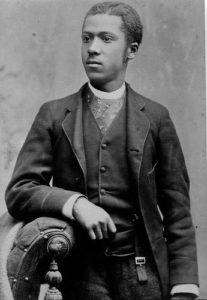
Beyond Speeches and Leaders: The Role of Black Churches in the Reconstruction of the United States
Black churches were at the center of remaking the United States’ post-Civil War political system into one that incorporated formerly enslaved black men into the body politic and revised the legal code to provide civil rights to these new citizens. Black Baptist and Episcopal Churches of Virginia provide insight into ...
Read More
Read More

Popularizing Proslavery: John Van Evrie and the Mass Marketing of Proslavery Ideology
Let’s start with a quiz. 1: What are zygomatic arches? 2: Who, exactly, was Amunoph IV? 3: What are the key similarities and differences between the Esquimaux Dog (C. familiaris, Desm.) and the Hare-Indian Dog (C. familiaris lagopus)? These questions are drawn from references made in one of nineteenth-century America’s ...
Read More
Read More
Editor’s Note: June 2020 Issue
Themes of movement and mobility unite the essays in this issue. We begin with Amy Murrell Taylor’s 2019 Watson Brown Award acceptance speech for her book Embattled Freedom: Journeys through the Civil War’s Slave Refugee Camps. The speech encapsulates a central contention of Taylor’s book—that movement was critical to the ...
Read More
Read More
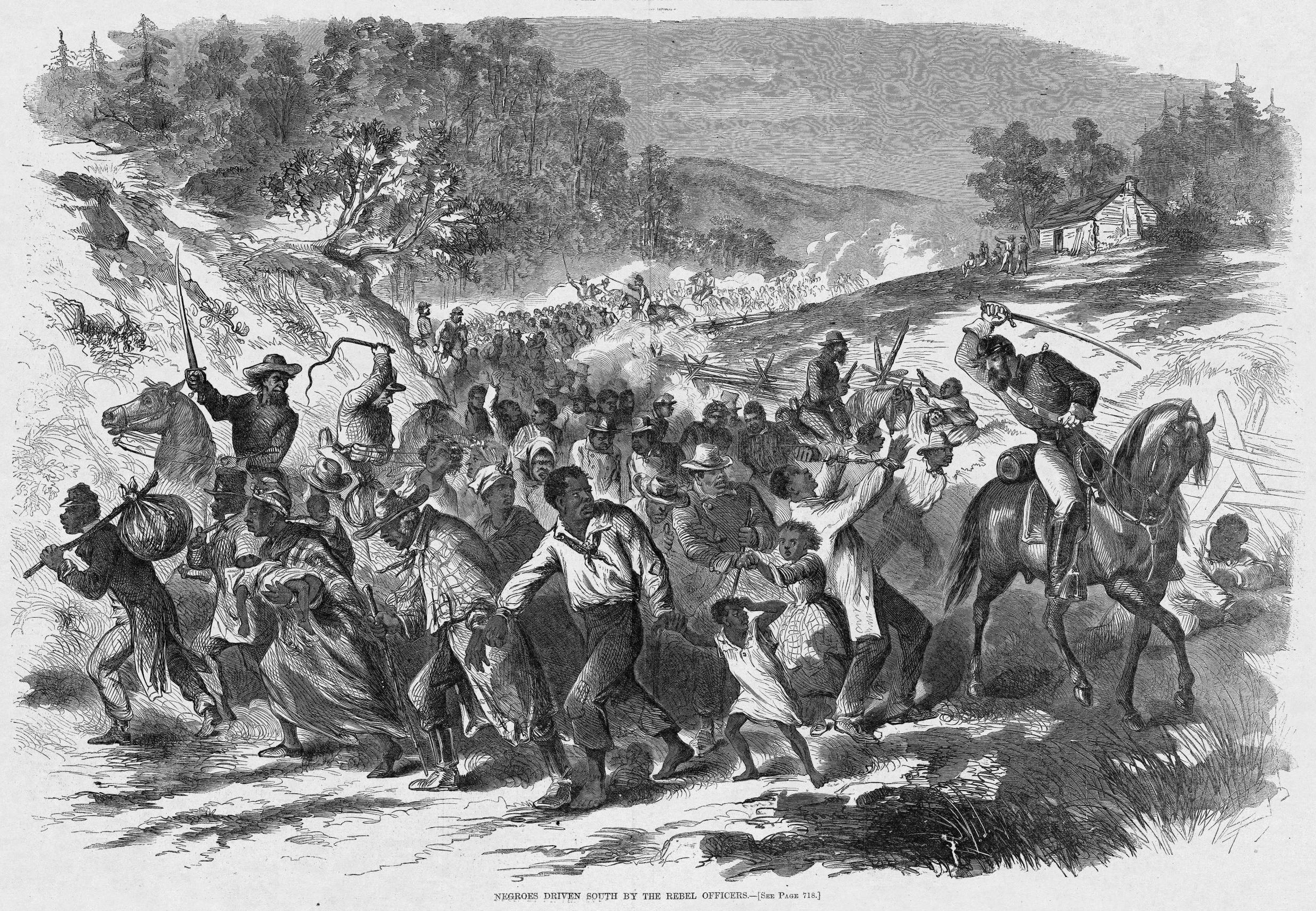
Tracing Black Mothers’ Love: Reconstruction-Era Reunification and DH Possibilities
The COVID-19 pandemic has magnified the importance of digital humanities (DH) projects and accessible digital tools for those locked out of traditional archival repositories. The recent and expanding democratization of archival materials, moreover, has introduced new possibilities for researching African American reunification efforts as an embodied application of Civil War ...
Read More
Read More
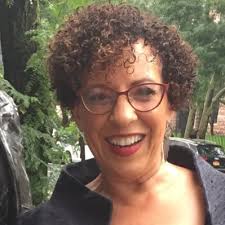
Welcoming P. Gabrielle Foreman to the Muster Team
We are pleased to announce the addition of a new correspondent to our Muster team, P. Gabrielle Foreman. Gabrielle recently moved to Penn State from the University of Delaware where she was the founding faculty director of the award-winning Colored Conventions Project. At Penn State, she'll launch and direct the Center ...
Read More
Read More
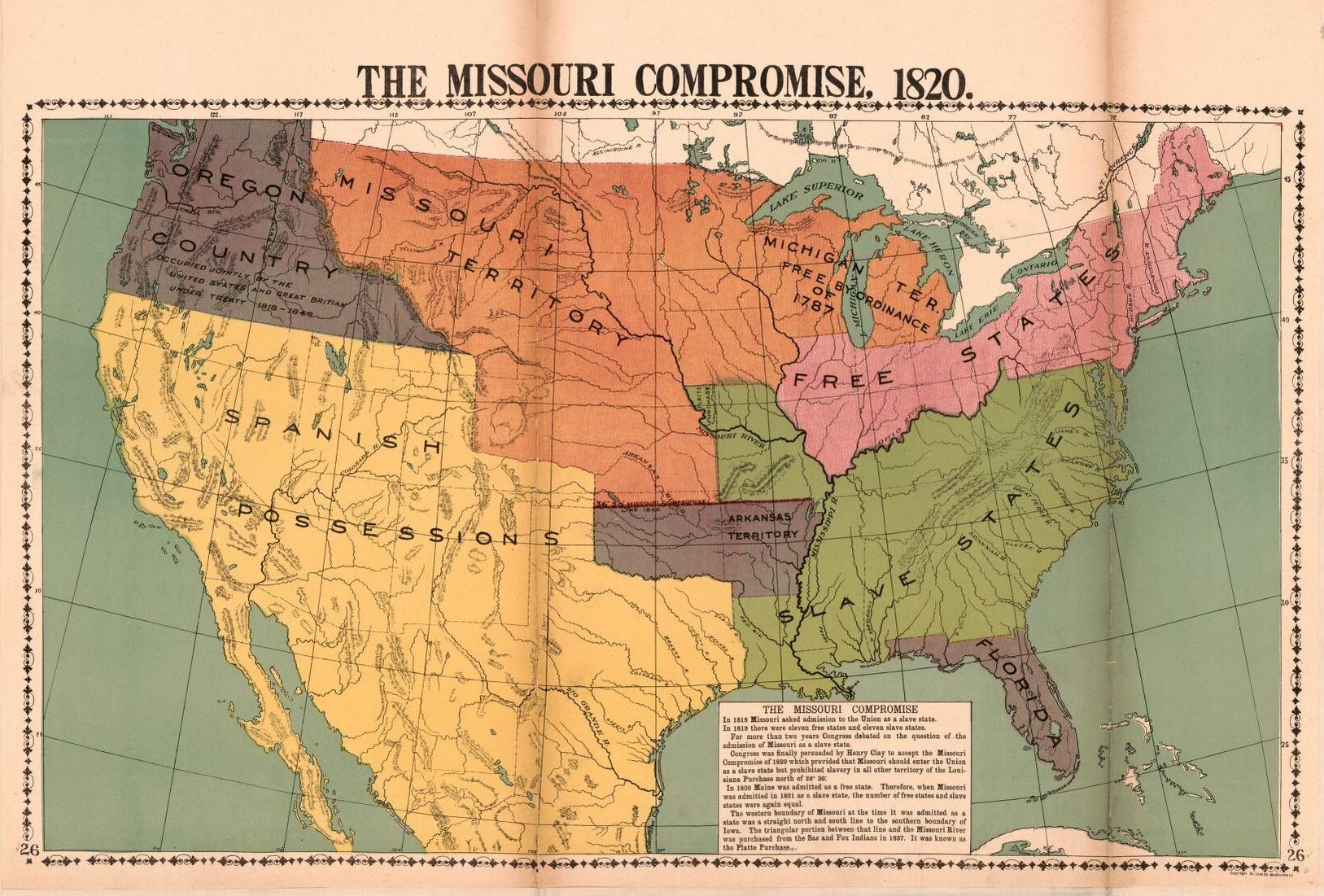
Missouri Compromised: Anti-Slavery Protest During the Missouri Statehood Debate
In his book On Compromise and Rotten Compromises, the philosopher Avishai Margalit argues that "we should be judged by our compromises more than by our ideals and norms. Ideals may tell us something important about what we would like to be. But compromises tell us who we are."[1] The essence ...
Read More
Read More

Poetry Not Yet Written: Revisiting Glory Thirty Years Later
Glory begins as so many Civil War films do: the sun rises on a vast battlefield, brave Union men march into war, and a ferocious battle ensues, American and Confederate flags billowing in the background. Despite its adherence to well-worn tropes, however, Glory tells a tale that is often obscured ...
Read More
Read More
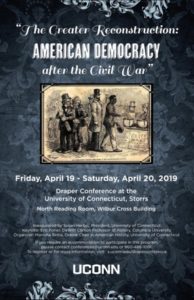
2019 Draper Conference Review: “The Greater Reconstruction: American Democracy after the Civil War,” Part II
Day two of the 2019 Draper Conference brought four more panels, including a plenary session that concluded the proceedings. For my review of day one of the conference, see my previous post on Muster. A panel on the topic of “Racial Terror and Violence” started off the morning block and ...
Read More
Read More
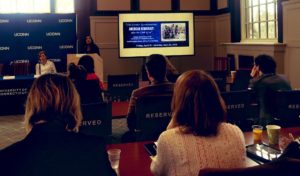
2019 Draper Conference Review: “The Greater Reconstruction: American Democracy after the Civil War,” Part I
On April 19 and 20, the University of Connecticut at Storrs hosted the 2019 Draper Conference on the topic of “The Greater Reconstruction: American Democracy after the Civil War.” The two-day event featured eight panels, consisting of thirty-one paper presentations and a keynote address.[1] All told, the conference revealed an ...
Read More
Read More
